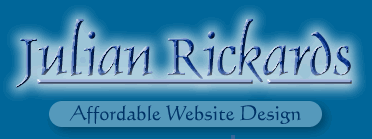Website Design Resources
HTML/CSS Resources:
Tutorials
I have been disappointed in the past with most tutorials in that they focus on isolated features or functions, not how to start from scratch and end up with a finished product. The only HTML tutorial that I have found that is worth its weight in gold is the tutorial by Alan Levine which he wrote for Maricopa College. Although it was then, and continues to be, for the most part, a tutorial on the use of HTML 3.2, it is the best tutorial I have seen and I challenge anyone to find a better one. As I have since moved on to HTML 4 and CSS, I have had to relearn a lot of HTML: dropping the tags and attributes which are not part of HTML 4 and adding the styles that replace them.
Websites
Although I feel that most "tutorials" do not reach the same standard as the one by Alan Levine, there are many other good resources I have found to be useful.
- I truly believe in the concept of webstandards with respect to HTML and CSS and have found much comfort and assistance through the WebStandards website and the links available from it including A List Apart, Eric Meyer's CSS work (the website of a CSS guro) and also Westciv.com a site that provides instruction on CSS and also sells assisting software.
- The New York Public Library is a good example of a website developed using standardized XHTML and CSS coding. The site also has a styleguide on how to use XHTML and CSS on affiliated website projects.
- HTMLhelp.com has downloadable help files of the HTML 4 tags and CSS 1. Given that HTML 4 is the basis on which XHTML was founded (in addition to XML), an understanding of HTML 4 is a good start. Both of these help files are very good, free and available resources (you don't need to connect to the Internet to access them).
- W3Schools.com is a good site for instruction in (X)HTML, CSS, ASP and a variety of other web-related technologies.
- The WDVL.com is also a good resource: as its acronym implies (Web Developers Virtual Library).
- WebMonkey.com is a great site with a collection of tutorials (pretty good ones in my estimation) and articles on authoring, graphics, scripting and other topics.
- The HTML with Style section in the WebReference.com website also has some good articles and advice on coding.
Books
As there is so much information on the Internet about developing web pages, it almost makes little sense to go out and purchase a book on it. However, not every writer has chosen the Internet as their method of delivery and until there is a secure method of delivering content via the Internet, such as the eBook format, paper-based books will continue to be important.
- The Advanced HTML Companion was initially used as an reference to HTML4 and CSS but I was disappointed with the number of errors and typos in the book. I don't think I would recommend it.
- There are several books from O'Reilly that are very good: the publisher is well respected for its "Definitive Guide" series from which I own the XHTML and HTML: The Definitive Guide. I am looking at purchasing a couple of others from this publisher.
